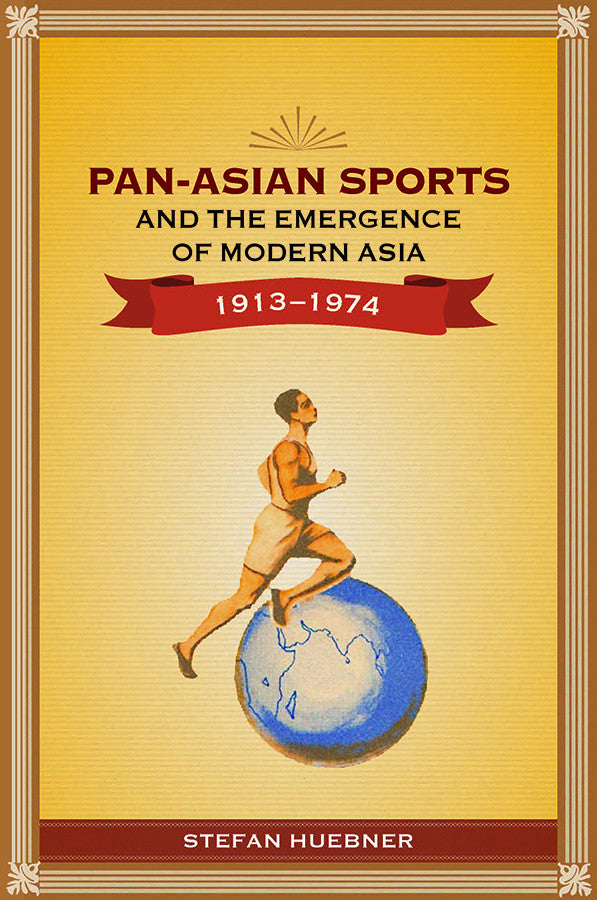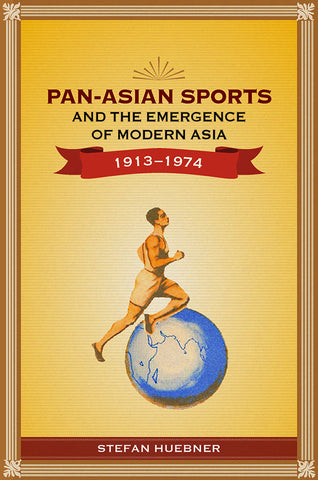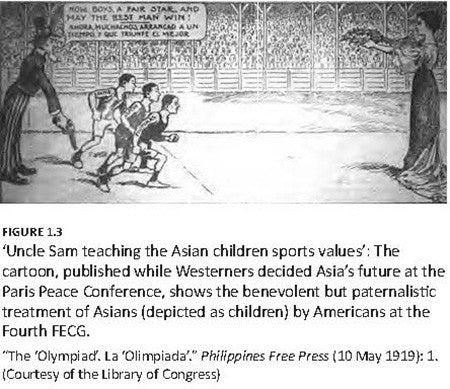Pan-Asian Sports and the Emergence of Modern Asia, 1913-1974
$46.00 SGD
By Stefan Huebner
The history of regional sporting events in 20th century Asia yields insights into Western and Asian perspectives on what defines modern Asia, and can be read as a staging of power relations in Asia and between Asia and the West. The Far Eastern Championship Games began in 1913, and were succeeded after the Pacific War by the Asian Games. Missionary groups and colonial administrations viewed sporting success not only as a triumph of physical strength and endurance but also of moral education and social reform. Sporting competitions were to shape a "new Asian man" and later a "new Asian woman" by promoting internationalism, egalitarianism and economic progress, all serving to direct a “rising” Asia toward modernity. Over time, exactly what constituted a “rising” Asia underwent remarkable changes, ranging from the YMCA’s promotion of muscular Christianity, democratization, and the social gospel in the US-colonized Philippines to Iranian visions of recreating the Great Persian Empire.
Based on a vast range of archival materials and spanning sixty years and three continents, Pan-Asian Sport and the Emergence of Modern Asia shows how pan-Asian sporting events helped shape anti-colonial sentiments, Asian nationalisms, and pan-Asian aspirations in places as diverse as Japan and Iran, and across the span of countries lying between them.
“indispensable for any scholar with even a passing interest in the history of sport in Asia...” - John J. Harney, Journal of Asian Studies
"The strengths of this work are the reader-friendly organization and similar chapter structure, making it an excellent reference book. The chronological organization by country allows the reader to take in the book as a whole or investigate a particular Asian games event, country, or period. It is also extensively researched and noted-based, with an impressive array of archival material, interviews, and sources from 13 countries." - A. Curtis, Lake Erie College for Choice
“a fascinating contribution to the history of Asian nationalisms...based on rigorous and exhaustive research across archives in multiple languages in Asian, European and Ameri- can archives....a brilliant scholarly monograph that takes us well beyond the athletics of the Games. They were playing fields of sports but they were also battlegrounds of the most consequential political struggles of the century.” - William W Kelly, Professor of Anthropology, Yale University
"The significance of this splendid book surpasses by far the history of sports. Based on a huge documentation in several languages including Japanese, Stefan Huebner provides a unique history of internationalism and identity formation in twentieth-century Asia.” - Jürgen Osterhammel, University of Konstanz
"A very rich, readable, and revealing account of connections between different actors, institutions, and government agencies... [and] the first major contribution to the history of sport across Asia." - John Sidel, Sir Patrick Gillam Professor of International and Comparative Politics, London School of Economics
"The book represents a valuable and original contribution not only to the Asian history, but also to the history of international relations in the twentieth century as well as to the emerging field of the transnational history of sports.” - Harald Fischer-Tiné, Professor of Modern Global History, ETH Zurich
“Focusing on regional Asian sports events, Stefan Huebner’s work makes a great contribution to the study of the entanglements between national and transnational as well as political and intellectual history in that region." - Dominic Sachsenmaier, Professor of Modern Chinese and Global History, University of Goettingen, Germany
“Huebner’s imaginative, interesting, and important book shows how the concept of Asia was shaped by international sports. This is the first book on the history, in the true sense of the word, of Asian sports.” - Takashima Ko, Associate Professor in the Graduate School of Letters, Kyoto University
"An important missing piece in Asia's history, this book demonstrates how sport played a pivotal role in shaping modern Asia. Scholars of Olympism and mega events will also find answers to a long unsolved riddle in sporting history." - Boria Majumdar, co-author of Olympics: The India Story
"Pan-Asian Sports and the Emergence of Modern Asia is a fascinating account of international sports events in 20th-century Asia. Truly transnational in its methodological approach, this pathbreaking study will be indispensable for everybody interested in the history of regionalism in Asia as well as the history of sports." - Sven Saaler, Associate Professor for Japanese History, Sophia University, Tokyo
"Huebner uses sports as a lens through which 'Asia' is interrogated. This work is ambitious in scope, and painstaking in its execution, offering a systematic approach to examining Asian Games, backed up with an impressive multi-archival research around the world." - Naoko Shimazu, Professor of History, Yale-NUS, Singapore
"Pan-Asian Sports and the Emergence of Modern Asia presents an important intersection of Asian studies and the history of sport, a welcome subject given the paucity of work on the evolution of embodied physical activity in Asia." - Russell Field, University of Manitoba
"...provides a powerful model of how sports are a significant marker of modernity...resonates beyond the subject matter to explore new directions in diplomacy and modern East-West relations." - Yunxiang Gao, American Historical Review
"presents a salient intersection between Asian Studies, sports studies and world history. It not only underlines the significance of sports in the context of decolonisation, nation-building and pan-Asian ideas in Asia; it also reflects the power relations between Asia and the West and the motivation of different stakeholders in politics and sports" - Friederike Trotier, Journal of Southeast Asian Studies
"In its breadth and depth, the research involved here is mightily impressive. The result . . . is a richly detailed study." - Ian Brown, Emeritus Professor, SOAS, Sojourn
“[A|n impressive example of multi-national research. (…) This book thus provides, as well as a welcome addition to the English-language literature on the development of sport in non-western contexts, essential background to understanding contemporary bids to host events not just in Asia, but elsewhere.”- John Horne, Professor, Waseda University (Sport in History)
“By concentrating on the world of sporting events and the regional interactions they facilitated before and after the Pacific War, Huebner significantly extends the scope of Pan-Asian analysis beyond Northeast Asia and into the decades of the Cold War. (…) Huebner’s seminal Pan-Asian Sports enriches the discourse considerably. This ambitious monograph provides a detailed analysis of sports competitions in Asia over a six-decade period in the twentieth century.” - Jeff Kingston, Professor of Asian Studies, Temple University Japan, Monumenta Nipponica
"Huebner’s outstanding and forensic scholarship confirms that sport events are invaluable sources for demonstrating the power dynamics of emergent elites, and their motives, in critical historical phases of the emergence of a modern Asia." - Alan Tomlinson, Professor in Leisure Studies, University of Brighton, Pacific Affairs
Stefan was interviewed as part of the Wilson Center's Sport in Cold War podcast series, where he spoke about the role sports played in Asia during the Cold War (Episode 25: The Pan-Asian Games). You can listen to this podcast here.
Read Stefan's eDossier about China and Iran's return to the Olympic movement in 1973-74 for the Wilson Center's Cold War International History Project.
Stefan Huebner is a historian of colonialism, modernization, and development policy. He is a research fellow at NUS’s Asia Research Institute and a SSRC Transregional Research Fellow. He received scholarships and fellowships from Harvard University, the Fulbright Commission, the Woodrow Wilson International Center for Scholars, the German Historical Institute Washington, and the German Institute for Japanese Studies Tokyo.
416 pages, 235mm x 156mm
Paperback
ISBN: 978-981-4722-03-2
NUS Press



